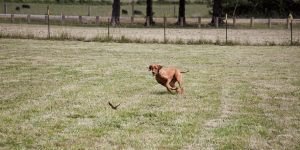Responsible Dog Ownership – Controlling Your Dog In Public
Holidays4Dogs considers this interesting question about what it means to be a responsible dog owner. What do dog owners think the model citizen in charge of a dog looks like? Read on to find out more about the concept of responsible dog ownership.
In 2016, a collaborative report was submitted to the Welsh Government by the RSPCA, Environmental Health Welsh, Dogs Trust and the National Police Chiefs Council. The report stated that responsible dog ownership is often overlooked as a subject concerning policymaking. This is particularly so in the fields of health and education.
Differing ideas on what ‘responsible dog ownership’ looks like in practice.
In 2019, a research paper conducted by the University of Liverpool found that
campaigns encouraging people to be ‘responsible dog owners’ often fall short of their aims. The university cited that this is because there is a vast variation in how people view the concept of responsible dog ownership.
For example, an increasing number of dog owners regard their pets as human family members. Nickie Charles from the University of Warwick further supports this point of kinship, whereby humans live with dogs as if they were ‘kin’ or, ‘dependants’.
However, the issue with the idea that many people regard their pets as ‘people’, is that it can potentially blur the line between species.
Invariably, this can mean dogs are put first – sometimes, before the needs of people.
On the other hand, where individuals regard their dogs as animals beneath them, there are connotations that the animal is an ‘object’, or a least, a non-sentient being. Therefore, perhaps, there is a reduced feeling of responsibility.
Is responsible dog ownership just about common sense?
Most dog owners tend to believe they are already ‘responsible’ when it comes to the care of their dogs. Perhaps this is because many people believe ‘common sense’ is the prevailing factor. The U.K. Kennel Club, for instance, focuses on training, identification and cleaning up after your dog.
Campaigns to encourage responsible ownership usually include an aspect of enforcement within the law. This, in itself, can be complex and often only employed after an incident has taken place – such as a dog attack.
The role of education in responsible dog ownership
In the paper submitted to the Welsh Government, it was suggested that interventions are necessary to support dog owners. Thus, problems are less likely to occur in the first place. This might involve education within schools and communities.
The Dogs Trust have been working with schools since 2003, delivering workshops and assemblies, which aim to educate children on the commitments and responsibilities involved in caring for dogs. In addition, the workshops help children, (and their parents), to understand how to behave around dogs they meet in the community.
There are many aspects of responsible dog ownership. One particular point is how people control their dogs while in public and the impact this has on dog owners and non-dog owners alike. Many owners see their dogs as having human-like characteristics and personalities. Therefore, there is the implication they should be treated as a person.
Is it just about good manners?
Thus perhaps, some dog owners feel that ‘responsible dog ownership’ does not extend to keeping their dog under control around fellow citizens. Despite this, one could argue, this fundamentally comes down to good manners, as a base concept, rather than responsible dog ownership per se.
The integration of pets into modern-day life is variable and it is also often contradictory. It is therefore logical to assume that people view the idea of ‘responsible dog ownership’ in different ways. Indeed, because of this, the Welsh Government study admitted the research task posed challenges. As a result, the study turned out to be far more complicated than was first thought.
For example, consider the dog behaving aggressively towards other people or dogs. This sounds like irresponsible ownership. However, other things such as breeding, training, or lack of owner experience, may be contributing factors.
In addition, the choices an owner makes is relevant to the concept of responsible ownership.
An owner may choose not to train their dog at all, for instance. They may decide instead to allow the dog to have a ‘natural life’.
However, this can be a dangerous approach if the dog is then allowed to chase livestock or other wildlife, for example.
They may lack the skills to train their dog or know how to go about learning this. It could be their dog may be just too difficult for them to handle and many may be reluctant to admit this. This is where education comes in – supporting people to help them choose the right pet, then train and manage them in appropriate ways.
There also needs to be a collective agreement on how dogs should behave in public spaces and the countryside, which might involve broader legislation in the future.
Conclusion
The concept of responsible dog ownership is a rather more complex concept than one might initially think. Responsible dog ownership, it seems, means different things to different groups of people and in various contexts.
However, as research suggests, being a responsible dog owner starts with education to encourage a collective understanding of how this should work in society as a whole. This approach not only takes into account the needs of people but also addresses the ethical treatment of dogs themselves.
Looking for more advice? We recommend Understanding Your Dog: The Essential Knowledge To Become A Responsible Dog Owner
Sources
Carri Westgarth, Robert M Christley, Garry Marvin & Elizabeth Perkins (2019) The Responsible Dog Owner: The Construction of Responsibility, Anthrozoös, 32:5, 631-646, DOI: 10.1080/08927936.2019.1645506
Nickie Charles (2016) Post-Human Families? Dog-Human Relations in the Domestic Sphere. Sociological Research Online, 21(3), 8 http://www.socresonline.org.uk/21/3/8.html
holidays4dogs.co.uk and 4Dogs are participants in the Amazon Services LLC Associates Program, an affiliate advertising program designed to provide a means for sites to earn commission fees by advertising and linking to the following websites. Read our full disclosure agreement here.



